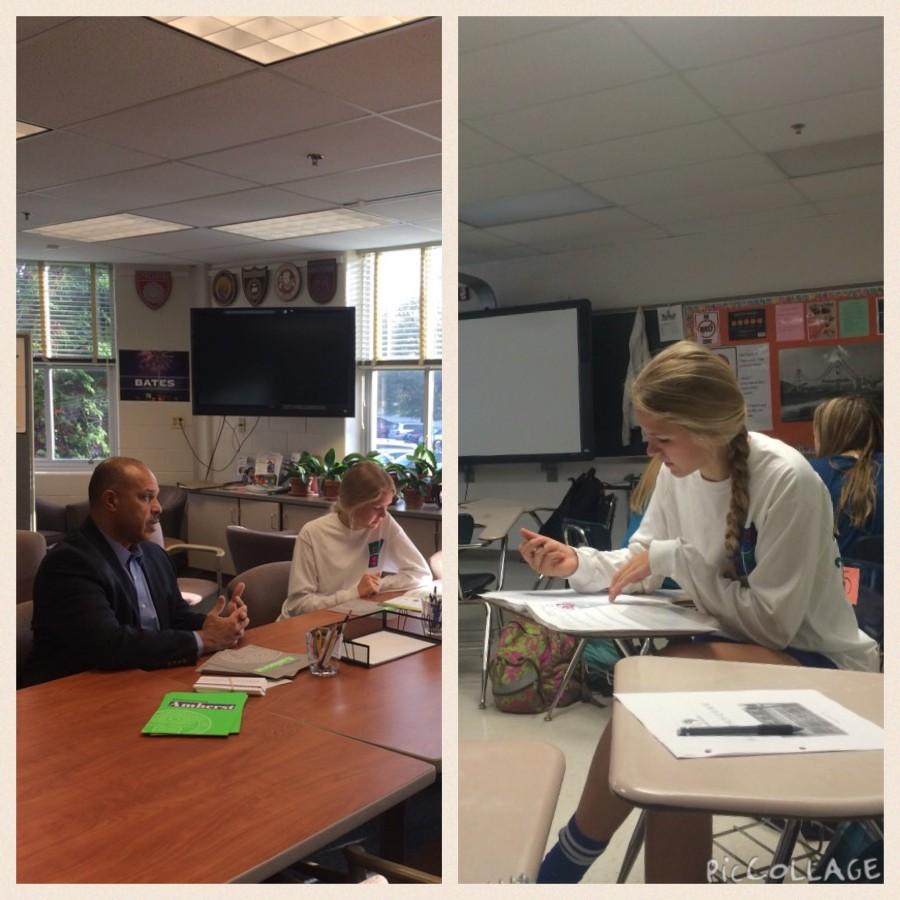College Visits Interfere with Student Learning
October 29, 2015
If a student skips class, he or she is more likely to get into the college of his or her choice.
Given the choice between attending University of Michigan’s college presentation or an AP class, a student is stuck with a tough decision. He has the desire to learn about the university and how to get in, but would need to miss his most challenging course in order to do so. When college visits are offered during class, many students are caught in the same situation.
College visits shouldn’t be offered during class because it isn’t a convenient time for students or teachers.
During these college presentations, the representative gives valuable information to students about the college and highlights some of the outstanding features of each school like study abroad programs and other special programs and majors offered. The college representative may also describe what kind of students they are looking for, the application process specific to their college, deadline dates and tuition.
However, with every up there is a down. Students who attend these presentations have to pay for their absence in class. With more and more colleges visiting and evermore stressed-out and overworked upperclassmen, students are missing class more often.
If students choose to go to a meeting during class, they’re responsible for making up their missed work. Class time is important. Why is there an option to miss it?
CHS is a stressful and competitive school that emphasizes the need to get the best grades, take the most AP classes and be part of many extracurricular activities. Students boast an impressive but overwhelming workload each week with multiple tests, quizzes and projects, resulting in major anxiety and pressure for students. Not attending class only adds to the burden.
But these visits aren’t just hurting students. They’re affecting their teachers as well. Missing class is extremely disruptive to the teachers, who spend much of their time planning the agenda for each of their classes. It’s unfair and inconsiderate of CHS to offer an alternative to every class. When students leave class to attend a college presentation, teachers are left with the responsibility of reteaching missed material or providing extra time for students to make up work.
The only positive aspect to the issue is that students are forced to learn how to self-teach the information, which is an important skill to have for college. Nevertheless, they should just be present for the instruction in the first place.
According to Head of the Science Department, Clinton Brown, college visits would be beneficial if they were properly organized. Students should be required to get permission from their classroom teacher in order to go, and those students who do not have a pass from their teacher should not be able to attend. At the presentation, attendance should be taken so that teachers will know who went.
In order to attend a college visit, students need to sign up in the college career center and get a pass to show to their teacher. However, some students get a pass and don’t show their teacher.
According to College Counselor Luana Zimmerman, college visits are scheduled based on the availability of representatives. During this season, also known as “travel season,” the representatives are extremely busy visiting high schools and college fairs. Zimmerman tries to offer these visits during lunch, but that time does not always work for college representatives. It’s better to have an inconvenient college presentation than no presentation at all.
For students who can’t miss class, more college visits should be offered during lunch, after school and on weekends.
Not to mention, many colleges track students’ demonstrated interest in their school, recording a student’s commitment to the school through visits, enrollment on mailing lists and attendance at college lectures.
For the most part, college visits that take place during school are worthwhile and extremely helpful for students because it’s more convenient for a university to come to students than students going to visit dozens of universities. Most students don’t have time to go on a hunt for a college with all of the other work that comes with school.
According to Zimmerman, aside from the timing of these events, the visits are, in fact, beneficial and advantageous for students. These representatives are the first to read students’ applications, so meeting them helps put a name to a face.
Despite these benefits, college presentations should not cause students to miss out on the very thing that’s going to get them into college in the first place.


